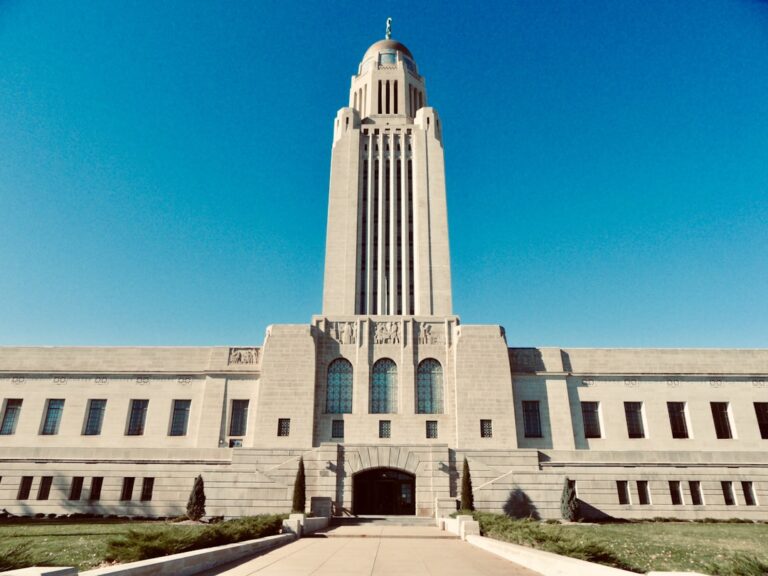Nebraska offers robust consumer protection for debt collection through its "Do Not Call" laws and Revised Statutes, empowering residents to manage privacy and prevent harassment from collection agencies. Consumers can register on the state's list, file complaints with relevant departments, and seek legal action against violators. Beyond federal guidelines, Nebraska strengthens rights with debt verification requirements and limits collector contact hours, ensuring fair treatment by reputable Do Not Call law firms.
In Nebraska, debt collection practices are subject to strict regulations, particularly the Do Not Call Law Firms Act. This comprehensive guide delves into Nebraska’s laws aimed at resolving debt collection errors, protecting consumers from unfair practices. We explore who is shielded by these laws, how to file complaints, and the penalties for violations. Additionally, we provide resources for victims seeking debt relief, ensuring informed navigation through this intricate landscape.
Understanding Nebraska's Do Not Call Law Firms Act

In Nebraska, the Do Not Call Law Firms Act offers consumers a way to assert their rights against aggressive debt collection practices. This act places restrictions on debt collectors, including law firms, by prohibiting them from making phone calls to individuals who have registered on the state’s “Do Not Call” list. The list is designed to give residents control over unwanted telemarketing and debt collection calls, ensuring a quieter and more peaceful environment for those who choose to opt-out.
Understanding this law is crucial when dealing with debt collectors or law firms in Nebraska. Consumers can register their phone numbers on the Do Not Call list by visiting the Nebraska Department of Revenue’s website. Once registered, law firms and debt collection agencies are legally bound to stop calling, providing a much-needed respite from persistent debt-related communication. This act empowers individuals to take an active step towards managing their privacy and limiting unwanted interruptions.
Who is Protected by the Nebraska Law?

In Nebraska, the law offers protections for consumers facing debt collection issues, ensuring fair practices in debt collection activities. The Nebraska Revised Statutes specifically address the rights of individuals and how creditors and debt collectors must conduct themselves. This legislation is designed to prevent abusive or misleading tactics often employed by debt collectors, providing a safety net for Nebraskans dealing with financial challenges.
The “Do Not Call” law in Nebraska is a significant aspect of consumer protection. It prohibits creditors and their representatives from contacting consumers at inconvenient times or places, including repeated or harassing phone calls. This law ensures that individuals have some control over the communication they receive regarding their debt, promoting a more respectful and less intrusive collection process.
How to File a Complaint and What to Expect

If you believe a debt collection agency has made an error or is engaging in unfair practices, it’s important to take action. The first step is to file a complaint with the Nebraska Department of Banking and Finance. You can do this by filling out their online complaint form or submitting a written statement detailing your issue. Be sure to include all relevant information, such as your name, account details, and a description of the error or concern.
When filing a complaint, expect a response from the department within 15 business days. They will investigate your claim and may request additional documentation from you or the debt collection agency. The outcome could result in the agency correcting the error, providing compensation for any harm caused, or even facing penalties for violating Nebraska’s debt collection laws. Remember, filing a complaint is a crucial step in ensuring your rights as a consumer are protected.
Penalties for Violations and Remedy for Victims

In Nebraska, violations of debt collection laws can result in severe penalties for collectors or creditors. These penalties are designed to protect consumers from aggressive and unfair practices. If a creditor or collector violates the Do Not Call laws, fails to verify debt information, or uses false or deceptive means to collect a debt, individuals affected may take legal action. Victims of such violations are entitled to seek damages, including actual and punitive costs, and may even file lawsuits against the offending party.
Remedies for consumers include filing complaints with the Nebraska Attorney General’s office and seeking legal counsel to pursue their rights. The state’s laws provide a clear framework to ensure fair debt collection practices, empowering individuals to protect themselves from abuse. By understanding their rights and available remedies, Nebraska residents can effectively navigate debt collection issues without resorting to aggressive measures, ensuring a more just and transparent process.
Additional Rights and Resources for Debt Relief

In addition to the protections offered by the Fair Debt Collection Practices Act (FDCPA), residents of Nebraska have further resources and rights when dealing with debt collection errors. The state’s laws provide an extra layer of defense for consumers, ensuring they are treated fairly during the debt collection process. One significant right is the ability to request verification of the debt from the collector. This means that if you dispute a debt, the collector must provide proof that it is legitimate and accurately reflects your outstanding balance.
Nebraska also has specific rules regarding communication with debtors. The “Do Not Call” laws protect residents from unsolicited calls from debt collectors, offering peace of mind and preventing harassment. These regulations ensure that collectors respect personal boundaries and only contact individuals during reasonable hours after providing proper notice.






